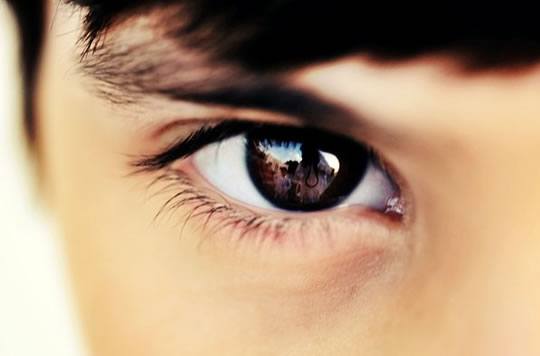1. Eye contact helps you concentrate
When your eyes are just scanning a room you end up taking in a lot of imagery. All those colors and shapes actually slow your brain down because it’s trying to concentrate on what you’re saying and also on all of this other stuff that your eyes graze over. By making eye contact every now and then, it allows your brain to focus on just one thing which clears it out to focus on what you’re trying to say.
2. It helps others pay attention
Making eye contact with somebody is a good way to get them to pay attention to you. These days with smartphones, readily available WiFi for laptops, and other distractions, it’s really easy for a crowd to start to lose focus. You can help restore this focus by making eye contact with people. If you look at them they will also look at you. This is especially effective for smaller crowds. It’s a simple formula. If you look at them then they will look at you and if you cannot then they probably won’t.
3. It gives you authority
This one is easy to understand once you’ve seen an example. Parents and police officers especially know this. If your child can’t look at you in the face when they tell you something, chances are they are lying or are ashamed about what they’ve done. The same can be said for public speaking with small variations. If you can’t make eye contact with your listeners, your listeners will subconsciously lose faith that you know what you’re talking about. This is why tech companies typically find the most charismatic person to give presentations instead of the nerdy guys with stage fright. A lot of your authority comes from looking someone dead in the eyes and telling them what is what.
4. Sustained eye contact can give you confidence
5. It turns your listeners into participants
When your audience notices that you’re look at them, it encourages them to respond using facial gestures. If you’re speaking and you look at someone who then frowns then you know something isn’t going right. This gives you a chance to change tactics. Looking at people, reading their expressions, and adapting after the fact turns your speech into a conversation with your audience. This can be the difference between a successful and enjoyable speech and a total flop.
6. It will help you talk at a more pleasing pace
When you look someone in the eyes for about three to five seconds it will actually slow your speech down. This helps you talk at a more natural pace and makes it easier for others to understand you. It may even help you pause entirely which is a popular tactic used by a lot of leaders and speakers. When you combine all of these things into a single package you end up with a pretty significant difference in your speech giving. You’ll be more confident and talk at a better pace with more concentration. It can be the difference in convincing the audience and not convincing an audience. Need proof? Every time Steve Jobs took the stage at Apple’s yearly event, Apple’s stock went up. Featured photo credit: Carbonated via media.carbonated.tv
